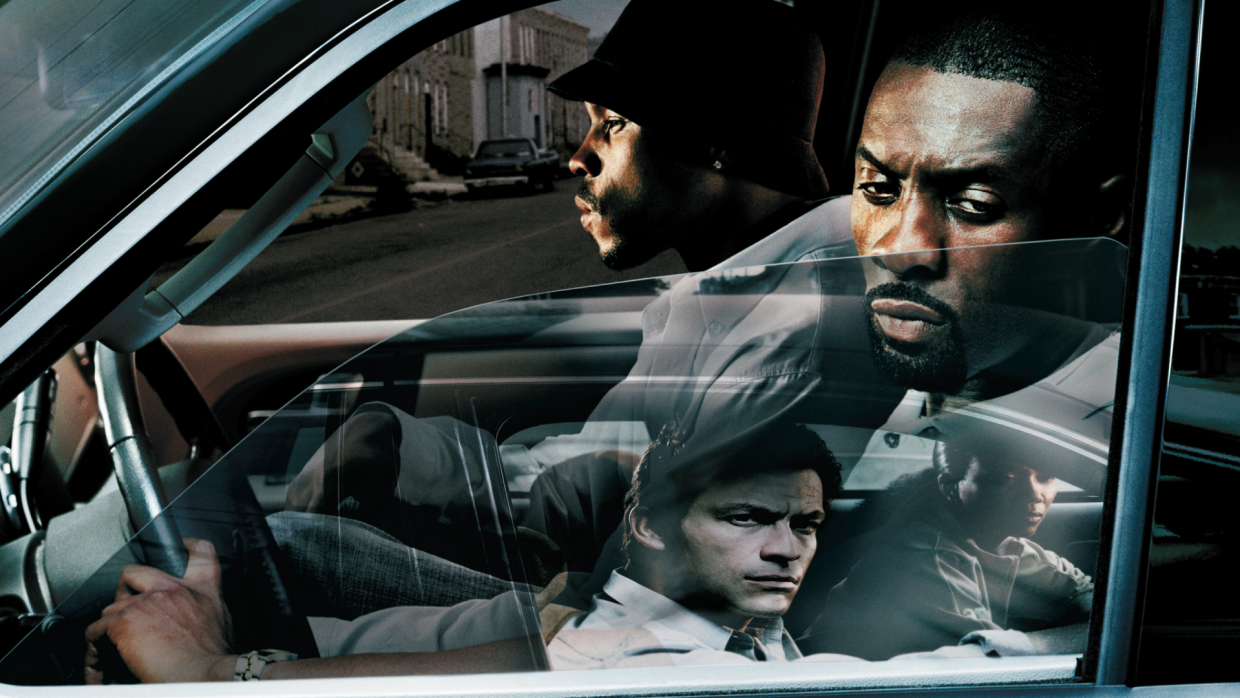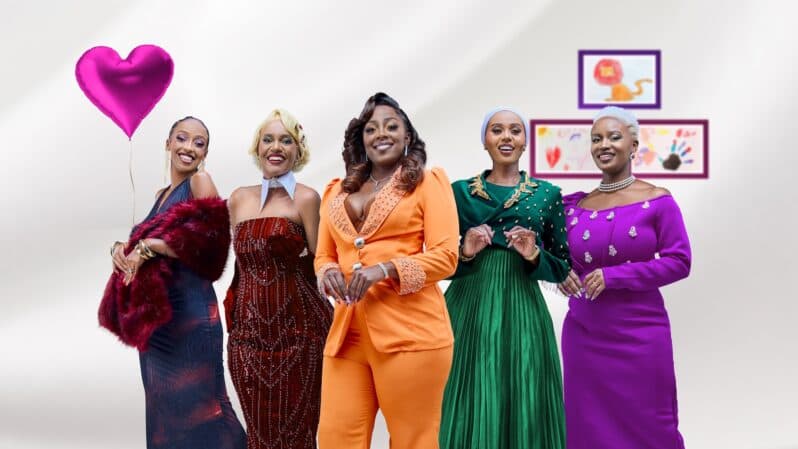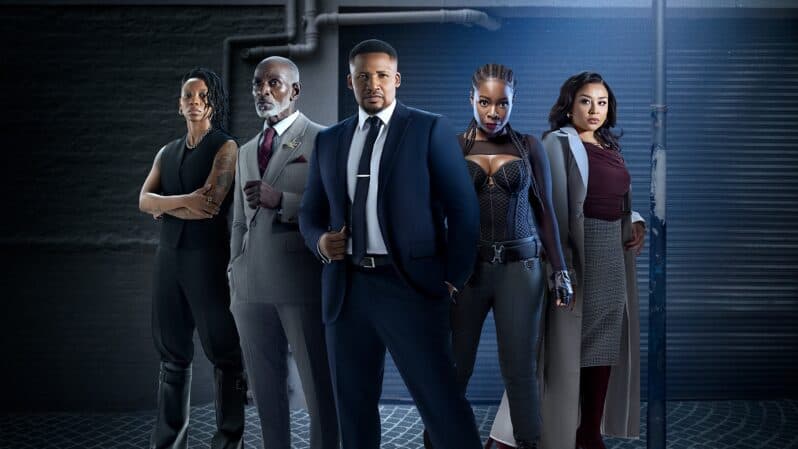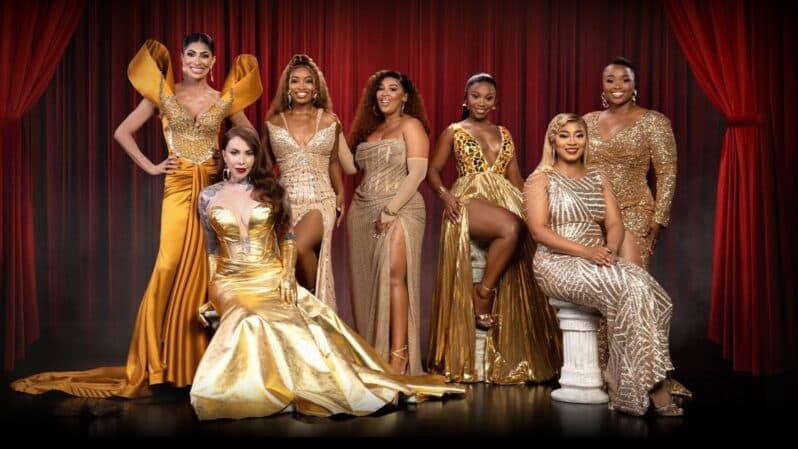
1 March 2018
10 reasons to watch The Wire
Even if guns, thugs and drugs aren’t your jam, if you’re a TV fanatic, HBO’s The Wire (2002-2008, Seasons 1-5 are now on Showmax) is a show you simply have to see.
If you’re a TV fanatic, The Wire (2002-2008, Seasons 1-5 are now on Showmax) is like The Sopranos (1997-2007, the full series is on Showmax) or Game of Thrones (2011-current, Seasons 1-7 are on Showmax) – it’s one of those shows you’re just supposed to have seen.
But with so much to watch just to keep up, many of us are treating The Wire like an ugly, expensive wedding gift; nodding along, pretending that it’s part of our lives and sweating whenever anyone raises the topic. If that sounds too familiar, it’s time to take The Wire out of the “ugly gift” cupboard. Here’s why.
1. It’s not a cop show
“This is a horror show because we are a heavily armed society that has lost control and the militarisation of police surrounding the drug war has made an us-against-them mentality.” – The Wire co-creator David Simon
Police shows are often the cop-out of TV writing – full of cheap thrills, cardboard characters, questionable conservative politics and a predictable episodic structure. The Wire co-creator David Simon, a former crime reporter for The Baltimore Sun for 13 years, is not a fan of the genre.
So while The Wire might start off being about cops, it’s more like one of those sprawling novels that Charles Dickens (himself a former court reporter) wrote about London’s poor. The Wire is the story of how the United States’ War On Drugs policy changed the nature of policework in Baltimore.
“The drug war was destroying police work. Street-level drug enforcement was becoming the skill set and solving crime was falling by the wayside,” says David. “This is a horror show because we are a heavily armed society that has lost control and the militarisation of police surrounding the drug war has made an us-against-them mentality.” Watch now »
2. Building the city
The Wire’s creators, cast and crew didn’t restrict their attention to cops and crooks. They looked at how the politics and economics of the drug war affected everyone in Baltimore.
“If the first season was about devaluing the cops who knew their beats and the corner boys slinging drugs, then the second was about devaluing the longshoremen and their labour, the third about people who wanted to make changes in the city, and the fourth was about kids who were being prepared, badly, for an economy that no longer really needs them. And the fifth? It’s about the people who are supposed to be monitoring all of this and sounding the alarm – the journalists,” says David. “We want people to say, ‘That is an American city, those are its problems and that’s why they can’t solve its problems’.” Watch now »
3. The art of conversation
Like True Detective (2014-current, Seasons 1 and 2 are on Showmax), The Wire has a way with words. “It is rooted in the real, which I believe leads to unique and idiosyncratic portrayals. We generally urge our actors to stay on book.”
That “book” or script was everything to David, because he was prepared to stand or fall by how accurate his portrayal of Baltimore street life sounded. “I spent years ‘gathering string’ on who they are, how they think and talk. In terms of dialogue, vernacular, description, tone. Like many writers, I live every day with the vague nightmare that at some point, someone more knowledgeable than myself is going to sit up and pen a massive screed indicating exactly where my work is shallow and fraudulent and rooted in lame, half-assed assumptions.” Watch now »
4. Authenticity
The Wire’s extras came straight off the street and some of its cast came straight out of prison. Melvin Williams, who plays The Deacon in Seasons 3 and 4, made millions dealing heroin in Baltimore in the ’70s and ’80s. In 1985 he was arrested by Ed Burns, the cop-turned-teacher who was David Simon’s most prolific writing partner in The Wire. Melvin was also one of the major inspirations for the character Avon Barksdale (Wood Harris).
Felicia “Snoop” Pearson, who plays street enforcer “Snoop”, was out of prison following a second-degree murder conviction and dealing drugs on the side when she met Michael K Williams (who played Omar Little – former US President Barrack Obama’s favourite character) at a club. He introduced her to the writers and producers, who created the role of Snoop for her in Season 3.
Omar himself was partly based on a dealer named Donnie Andrews who voluntarily turned himself over to Ed after he accepted work as a contract killer to support his addiction. Bubbles (Andre Royo) was based on a real-life informant who shared his photographic memory and his trick with using hats to identify criminals to the police. Watch now »
5. Talent and craft
Even the cast who were simply trained actors had the street people fooled. A stranger once saw “Bubbles” in passing and gave him a bag of heroin and told him, “Man, you need a fix more than I do.” Andre Royo refers to that moment as his “Street Oscar”.
David thinks the cast should get far more recognition for their skill. “One of the things I am a little bit resentful for is we have a remarkable cast of African-American actors who are utterly unacknowledged by the industry. They are never regarded as having created any characterisations or achieved any sense of craft for what they are doing. It’s almost as if they think we turn the camera on people and they just were being; that’s the way they are. And in fact, these are incredibly professional actors who are reading from a script,” he points out. Watch now »
Fun fact: The character Omar, who values his self-control above everything, swears only once during the entire series.
6. Also starring
While its unknowns are doing incredible work, The Wire also boasts some big names. The cast includes Dominic West as Jimmy McNulty, Lance Reddick as Cedric Daniels, Idris Elba as Stringer Bell (Seasons 1-3), Aidan Gillen as Tommy Carcetti (Seasons 3-5), Michael B Jordan as Wallace (Season 1) and Gbenga Akinnagbe as Chris Partlow (Seasons 3-5). Watch now »
7. Good guys, bad guys
The Wire, while having a moral core, takes a somewhat neutral stance on who the good and bad guys are, which gives loads of room to explore complex characters on all sides of the story. “Everybody had to be human. I had to care about every character right down to drug dealers,” says David. “We always conceived of Omar as a critical entity – along with Bubbles – a perversely moral force and a bridge between the police and street worlds.” Watch now »
8. Low exploitation
In all five seasons, only one police officer is ever shown firing his gun. “In most instances, we try to keep the violence disturbing and abrupt, rather than choreographed and romanticised. I’m not sure what we try to do with sexual scenes except to keep them credible within the context of the characters and their relationship to each other at the given moment,” explains David. Watch now »
9. The right direction
Relationships and backstory were hugely important to the show’s creators. Director and later executive producer Joe Chappelle reveals that “on a show like ours, if you just read the script on face value, it reads one way. But if you know all the history of what’s gone on up until this point, there’s a whole other layer to it. On The Wire, any individual episode is part of a bigger pie, not a stand-alone piece. To direct [The Wire], you have to have done your homework on the show as a whole.” Watch now »
10. Rewarding streaming
Finally, while there are very few flashbacks to deal with, The Wire tells a complex story where very little is explained, from common terms on the street to the interrelationships within the police or drug gangs. “Usually, by the 11th, 12th, 13th episode, you start to see connections, stories that seemed disparate actually are headed toward each other. But having said that, we are willing to go longer and further with disparate story lines than any show, I think, before it,” says David.
So it’s fantastic as viewer to be able to go back and re-watch early episodes to see how certain elements of the story have been put in place early for a later pay-off, which you can now do on Showmax, with all five seasons ready and waiting right now.
Additional sources: Believermag.com, Borderline-Productions.com, Creativecow.net, MrMedia.com, NewYorker.com, Slate.com, Washingtonpost.com
Original African stories by local talent

The ABC Killer
The ABC Killer is a twisty true-crime documentary series about serial killer Moses Sithole. Stream from 22 July on Showmax.

What if we believed the best can come from here?
Let’s rewrite the rules of what it means to be local.

Untied S1
Untied explores the deeply personal and often complex experience of divorce, told through the voices of women who have lived it. Stream now, with new episodes every Tuesday.

Reckless S1
Reckless follows a pair of young brothers who find themselves at a crossroads when a tragic accident changes their lives forever. Stream now, with new episodes every Monday and Tuesday.

The Mommy Club NBO
The Mommy Club NBO is the fifth instalment of the record-breaking Mommy Club franchise. Stream now, with new episodes every Friday.

Empini S1-2
Empini is a high-stakes, action-packed drama set in the ruthless, corrupt world of private security. Season 2 is now streaming, with new episodes every Tuesday.

Youngins S1-2
Stream Tshedza Pictures’s first teen drama, Showmax Original Youngins. S1 and S2 are ready to binge.

The Real Housewives of Durban Seasons 1-5
Our eThekwini queens serve looks and deliver drama. Stream Season 1-5 now, including all the explosive reunion episodes.
SA celebs open up about divorce on Untied
The action heats up on Empini
More Mzansi gold

Watch her win! Women’s sports watch list
While you wait for Banyana Banyana’s next WAFCON game, we have drama series and documentaries celebrating women in sport, on and off the court.

Former captain Amanda Dlamini on Banyana’s challenges
Amanda Dlamini shares insights on Banyana Banyana’s WAFCON journey as they face Tanzania on Friday, 11 July in the Showmax Premier League.

Must-watch trailer: Norma Mngoma on Untied S1
Coming up next on Untied, Norma Mngoma steps into the spotlight as she opens up about her journey through marriage and divorce. New episodes every Tuesday on Showmax.

My Brother’s Keeper S1-2
An overly ambitious son, tired of being side-lined by his father, decides to break the family rules by going after his brother’s widow.
